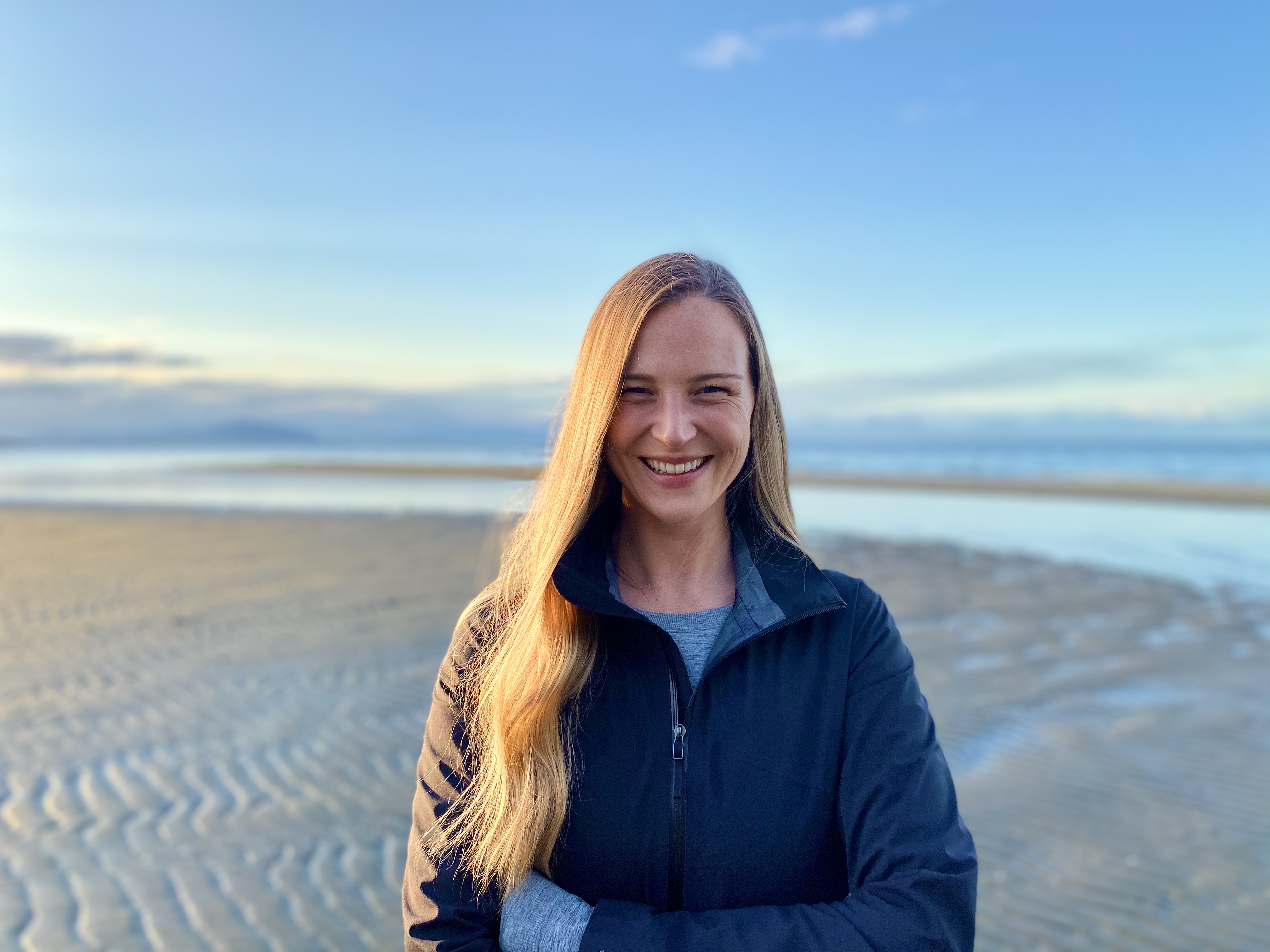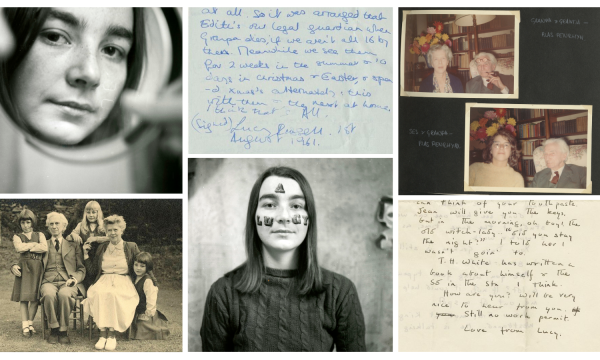
Alix Shield has dedicated her academic career to Indigenous women’s writing, editing, and publishing in Canada.
A settler scholar, Shield is a lecturer in the Department of Indigenous Studies at Simon Fraser University. She recently published an updated edition of E. Pauline Johnson's Legends of Vancouver – retitled Legends of the Capilano – with the University of Manitoba Press and members of the Skwxwú7mesh Nation.
Shield leads the next Archives Alive online presentation, entitled Kwaskastahsowin (“put things to right”): Conciliation in the McClelland & Stewart and E. Pauline Johnson Collections, on March 7, 2024. The moderator is Rick Monture, an associate professor in the Departments of Indigenous Studies and English & Cultural Studies at McMaster. He is a member of the Mohawk nation, Turtle clan, from Six Nations of the Grand River Territory. Register for the free event on the library events webpage.
We spoke with Shield about her research, the impact of two seminal works by Maria Campbell and E. Pauline Johnson, and what it means to “put things to right”.
Tell us about your research and why it matters.
My research focuses on 20th century Indigenous literatures published in Canada, and looks primarily at E. Pauline Johnson’s and Chief Joe and Mary Capilano’s Legends of Vancouver (1911) and Maria Campbell’s Halfbreed (1973). My approach to these texts focuses on their circumstances of production; I look at things like publishing contexts/timelines, and consider how these texts have been treated by various editors and publishers over time. I rely on physical evidence found in archival collections, like the McMaster archives, to better understand these things. I also often utilize digital technologies, such as tools that help compare different versions of a text, or tools that help to create digital timelines, in my approach. This type of research is important because it highlights the prevalence of colonial power dynamics in the production of 20th century Indigenous literatures, and seeks instead to honour the author’s intentions as conveyed through original archival documents.
The theme of your upcoming talk is the Cree word, kwaskastahsowin, to describe what it means to seek conciliation or to “put things to right”, which was introduced in Maria Campbell’s updated 2019 edition of her memoir Halfbreed. Tell us what this word means to you?
The idea of “putting things to right” or repairing relationships is critical at this time of reconciliation and conciliation in Canada. For me, this means reading and understanding the Truth and Reconciliation Commission’s 94 Calls to Action, and finding ways that I can meaningfully further these recommendations in my own life. I think it is important to remember that the work of decolonization, of “unsettling” and “unlearning” and making space for other ways of thinking and knowing, is work for all people in Canada to engage with.
Your Archives Alive presentation focuses on two Indigenous authored works, including Maria Campbell’s Halfbreed and E. Pauline Johnson’s Legends of Vancouver. What makes these two texts important?
The texts I focus on in this presentation are by two Indigenous women writers that both made major interventions into the fields of Canadian and Indigenous Literatures. Johnson’s Legends of Vancouver (1911) presents a series of Indigenous legends, mostly based on the oral stories shared by Skwxwú7mesh (Squamish) storytellers Chief Joe Capilano and Mary Capilano. My research on this text focuses on the ways that various factors have had long-term implications on the storytelling legacies of Johnson’s collaborators, Joe and Mary Capilano. Campbell’s Halfbreed is an autobiography that reflects upon Campbell’s life experiences as a Métis woman; it importantly gave voice to an emerging Métis consciousness for the first time in mainstream Canadian publishing. My research on this text focuses on its circumstances of publication; in particular, how certain editorial decisions made by her publisher, McClelland & Stewart, led to two key pages being removed without Campbell’s permission prior to publication.
Maria Campbell’s Halfbreed celebrated its 50th anniversary this past year. What do you feel is the impact of the updated and restored 2019 Halfbreed publication, in which you played a key part by discovering the omitted manuscript pages?
I am endlessly grateful and humbled to have been given an opportunity, along with my research colleague Deanna Reder (Cree-Métis), to help Campbell “put things to right” and tell her story the way she had always intended. I think that the 2019 republication of Halfbreed demonstrates the possibilities of kwaskastahsowin within the context of Canadian publishing, of repairing relationships and moving forward in a good way. It is very significant that Campbell decided to republish Halfbreed with McClelland & Stewart, the very same publisher that handled her text in 1973, and to use this as an opportunity for the publisher to make things right. In the Afterword to the new edition, Campbell thanks “Jared and McClelland & Stewart for conciliation (kwayskasahsowin)” (194).
You also served as editor of an updated Legends of Vancouver, now titled Legends of the Capilano, by E. Pauline Johnson. What is new about this edition published in 2023?
The updated and retitled edition of Legends, published with the University of Manitoba Press in their “First Voices, First Texts” series, was produced in collaboration with the Mathias Family, who are members of the Sḵwx̱wú7mesh Nation and direct descendants of Chief Joe and Mary Capilano. The Capilanos were Johnson’s collaborators on the Legends of Vancouver stories, but have never been given proper credit for their contributions until now. In the new edition, I’ve provided extensive biographical entries for Joe and Mary, and also include insights from the Mathias Family. The new title signifies the first time that Johnson’s intended title for the collection has been used in print. I’ve also included five extra stories that were originally narrated by Mary Capilano, but were not published in the 1911 book. You’ll have to wait until my presentation to hear the rest!
What are you hoping the audience will take away from your Archives Alive presentation?
I hope this presentation will serve as an example of what it can look like to engage meaningfully with the Truth and Reconciliation Commission’s 94 Calls to Action, especially for those who are looking to take action but unsure of how to start. As a non-Indigenous person working in the field of Indigenous Studies I am committed to prioritizing the Truth and Reconciliation Commission’s recommendations, which specifically call for increased accountability to Indigenous Peoples at post-secondary institutions in Canada. I see this work as one way I can use my position and privilege to make a difference. I also hope this presentation will highlight the incredible potential for decolonial, impactful work within archival environments – work that can help bring untold stories to light. I’m thankful for the opportunity to speak about these two key Indigenous-authored texts, and hope the audience will find themselves with two more books to add to their reading list.
Is there anything else you’d like to our readers to know about this presentation or your work?
I’ve also created a digital publishing timeline for Campbell’s Halfbreed, based on the archival documents I researched while visiting McMaster’s archives. Though I will be talking briefly about the book’s publishing history during my presentation, this timeline goes into much more detail.


